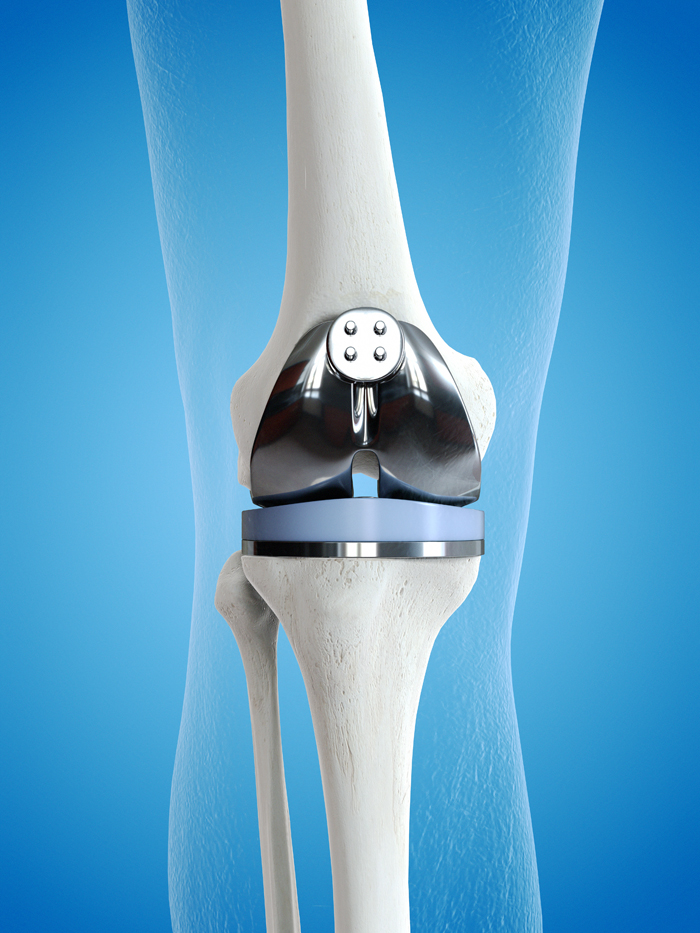Knee Replacement Treatment & Diagnostics in Sadashiv Peth, Pune
Knee Replacement
Knee replacement is a surgery performed to reduce pain as well as restore function in severely damaged knee joints. It is also known as knee arthroplasty.
What is Knee Replacement?
In the knee replacement procedure, the damaged bone and cartilage are removed from the shinbone, thighbone, and kneecap. It is replaced with a prosthesis made of polymers or metal alloys.

Why is Knee Replacement Done?
The most common reason for knee replacement procedure in Pune is osteoarthritis, a condition wherein the joint cartilage becomes damaged due to wear and tear. People with osteoarthritis aren’t able to do normal activities such as climbing the stairs or walking due to the pain. It may feel like the knee joint gives away or becomes swollen because of the instability of the joint.
Sometimes, other forms of arthritis such as arthritis resulting from a knee injury or rheumatoid arthritis can also cause the knee joint to become damaged. Apart from this, torn cartilage or ligaments and fractures can also lead to knee damage.
What are the Types of Knee Replacement?
There are three types of knee replacement procedures –
- Partial knee replacement – In this procedure, only the area of the knee that is damaged is replaced.
- Total knee replacement – In this procedure, the complete knee is replaced.
- Bilateral knee replacement – In this procedure, both knees are completely replaced simultaneously.
Who Should Consider Knee Replacement in Pune?
Knee replacement surgery should be considered by people in the following cases –
- Osteoarthritis
- Rheumatoid arthritis
- Congenital knee deformity
- Knee injury
How is Evaluation for Knee Replacement Done?
A medical evaluation is required for individuals considering knee replacement surgery. This includes –
- Questionnaire – In this questionnaire, individuals are asked certain questions about their pain level, activities they cannot perform, medical history, etc.
- Physical evaluation – In this, your doctor will physically examine the range of motion and flexibility of your knee using a protractor-type instrument.
- Imaging tests – Imaging tests may include X-rays and MRIs to determine whether knee replacement is an option for you.
According to your evaluation, your doctor will recommend whether knee replacement is an option for you or not. If it isn’t a viable option for you, your doctor might recommend other treatment options.
How is Knee Replacement Done at Apollo Spectra, Pune?
During the knee replacement procedure, your surgeon at Apollo Spectra, Pune will make an incision of about 5 to 10 inches. Then, they will move your kneecap aside to remove the damaged cartilage and bone from the meeting point of the thigh bone and shinbone. Then, the prosthesis will be attached in place.
After this, they will bend and rotate your knee to test for proper function. Then, the incision is closed. The surgery takes around 2 hours.
What Happens After Knee Replacement Procedure?
After the knee replacement surgery, you will have to stay at the hospital for a few days. Your doctor will prescribe medication if you experience any pain. You will be asked to move your foot as well as your ankle. This is recommended to encourage blood flow to the leg muscles as well as to prevent blood clots or swelling from occurring. You will also be given blood thinners to prevent these complications.
Patients can increase their activity level gradually and are recommended to do certain exercises for better recovery. Most patients can resume their daily activities after three to six weeks of their surgery. Patients should avoid engaging in high-impact activities such as tennis or contact sports. They can participate in low-impact sports such as swimming or biking, post their recovery.
What are the Complications Associated with Knee Replacement?
As with any surgical procedure, there are a few complications associated with knee replacement –
- Blood clots
- Stiffness
- Infection
- Pain even after successful surgery
Generally, most knee replacement surgeries are successful and there aren’t any severe complications.
When to See a Doctor?
You should consult a doctor Apollo Spectra, Pune, if –
- Medication isn’t effective in easing your knee pain.
- You are having difficulty performing daily activities such as climbing stairs, walking, or getting up from a chair or bed.
- Non-invasive treatment options aren’t reducing pain and inflammation.
- You are between the age of 50 and 80.
Request an appointment at Apollo Spectra, Pune
Call 1860-500-2244 to book an appointment
Conclusion
Knee replacement is very common and most people can get back to activities such as walking, swimming, or tennis without pain. Knee replacement surgery can help restore function and flexibility in your knee while relieving pain, thus, improving your quality of life.
After knee replacement surgery, look out for symptoms including fever above 100 F, chills, leakage from the site of surgery, and tenderness, swelling, or pain in the knee increasing. If you observe any of these symptoms, you should immediately consult your doctor.
Your doctor may ask you to stop taking certain medications, a few weeks before your surgery. You will be asked to not eat anything after midnight, on the day of your knee replacement surgery.
Our Top Specialities
NOTICE BOARD
CONTACT US
CONTACT US
 Book Appointment
Book Appointment


.svg)
.svg)
.svg)
.svg)








